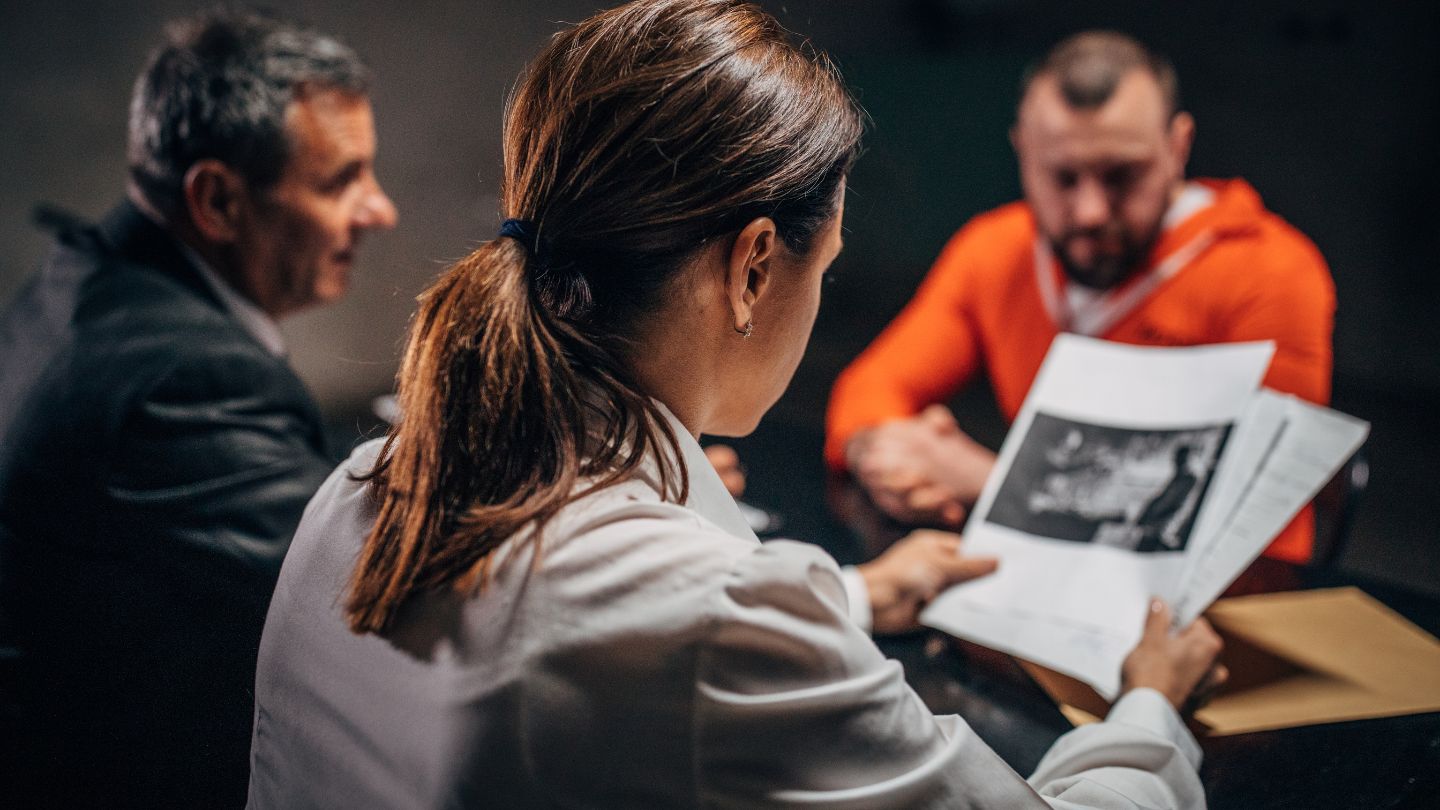The Role of a Defense Attorney in Criminal Cases
The criminal justice system is a complex and multifaceted arena, where the stakes are often extraordinarily high. At the heart of this system is the defense attorney, a legal professional who plays a crucial role in ensuring that justice is served. 
This article delves into the responsibilities, challenges, and ethical considerations that define the role of a defense attorney in criminal cases.
Advocate for the Accused
Protecting Rights and Liberties
The primary responsibility of a defense attorney is to advocate for the accused. This role is foundational to the legal principle that every individual is entitled to a fair trial and that the burden of proof lies with the prosecution.
A defense attorney ensures that their client's rights, as enshrined in the Constitution and other legal frameworks, are protected throughout the legal process.
The Right to a Fair Trial
A core component of a defense attorney's role is to uphold the right to a fair trial. This includes ensuring that the defendant receives a fair and impartial hearing, is informed of the charges against them, and has the opportunity to present their side of the story.
Defense attorneys scrutinize the evidence presented by the prosecution and challenge its validity when necessary.
Legal Representation and Counsel
Providing expert legal representation is another key duty of a defense attorney. This involves advising clients on legal matters, explaining the charges and potential consequences, and helping them navigate the often bewildering legal system.
The attorney must also communicate potential legal strategies and outcomes, empowering clients to make informed decisions about their cases.
Building a Defense Strategy
Investigating the Case
A thorough investigation is the cornerstone of an effective defense. Defense attorneys, often in collaboration with private investigators or legal assistants, gather and review evidence, interview witnesses, and analyze the prosecution's case.
This investigative work is essential in identifying weaknesses in the prosecution's arguments and uncovering evidence that supports the defendant's innocence or mitigates their culpability.
Crafting Legal Arguments
Once the investigation is complete, the defense attorney crafts a legal strategy tailored to the specifics of the case.
This strategy might involve challenging the legality of evidence collection, questioning the credibility of witnesses, or presenting an alibi. In some cases, it may also involve negotiating plea bargains with the prosecution if it is in the client's best interest.
Preparing for Trial
Preparation for trial is an exhaustive process that includes drafting legal documents, preparing witnesses, and rehearsing courtroom procedures.
Defense attorneys must be adept at both written and oral advocacy, as they will present their case through legal motions, direct and cross-examinations, and closing arguments.
This preparation is crucial for effectively conveying the defense's narrative and persuading the judge or jury.
Ethical Considerations and Challenges
Navigating Ethical Boundaries
Defense attorneys operate within a strict ethical framework that mandates loyalty to the client, confidentiality, and integrity in all legal dealings. However, they must also balance these duties with broader obligations to the court and the legal system.
This balance can be particularly challenging in cases where the client may be guilty of serious crimes, or where the attorney's personal beliefs may conflict with their professional responsibilities.
Confidentiality and Privilege
One of the cornerstones of the attorney-client relationship is confidentiality. Defense attorneys are ethically bound to protect the confidentiality of all communications with their clients.
This principle ensures that clients can speak freely with their attorneys, providing the information necessary to mount an effective defense. However, this duty also raises complex ethical issues, especially if a client discloses future criminal intentions.
Dealing with Public Perception
Defense attorneys often face public scrutiny, particularly when representing clients accused of heinous crimes. This can lead to societal judgment and personal criticism, which can be challenging to navigate. Despite this, defense attorneys are committed to upholding the principles of justice, which include ensuring that every individual, regardless of the crime they are accused of, receives a fair trial.
The Impact of a Defense Attorney on the Criminal Justice System
Ensuring Accountability and Fairness
Defense attorneys play a vital role in maintaining the integrity of the criminal justice system. By challenging the prosecution's case, they ensure that the government meets its burden of proving guilt beyond a reasonable doubt.
This adversarial process is essential for holding law enforcement and prosecutors accountable, preventing miscarriages of justice, and protecting individual liberties.
Advocates for Legal Reform
Many defense attorneys also engage in advocacy for legal reform, recognizing the systemic issues that can lead to unjust outcomes. They may work on cases that challenge existing laws or highlight inequities within the system, such as racial bias or socioeconomic disparities. Through their work, defense attorneys contribute to broader conversations about justice and the need for legal and policy reforms.
The Human Element of Legal Defense
Beyond the legalities, defense attorneys often serve as counselors and support systems for their clients. They provide not only legal guidance but also emotional support during one of the most challenging times in their clients' lives. This human element is a crucial aspect of the defense attorney's role, underscoring the importance of empathy and understanding in the practice of law.
Conclusion
The role of a defense attorney in criminal cases is both complex and indispensable. These legal professionals are tasked with upholding the rights of the accused, crafting defense strategies, and navigating ethical dilemmas, all while maintaining a commitment to justice and fairness. Their work not only impacts individual cases but also contributes to the broader integrity and accountability of the criminal justice system. As advocates, investigators, and counselors, defense attorneys play a crucial role in ensuring that the scales of justice are balanced.






























